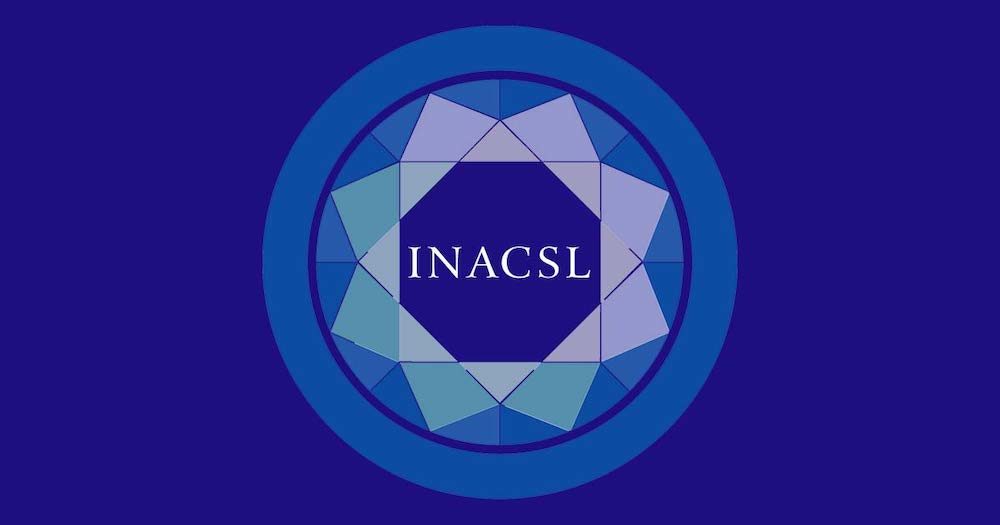International Nursing Association for Clinical and Simulation Learning (INACSL)
INACSL, aka the International Nursing Association for Clinical and Simulation Learning non-profit organization, is dedicated to advancing healthcare simulation science. With over 3,100 members worldwide, the organization’s mission is to be the global leader in the art and science of healthcare simulation through excellence in nursing education, practice, and research. INACSL’s goal is also to advance the science of nursing simulation by providing professional development, networking resources, and leadership in defining healthcare simulation standards of best practice. HealthySimulation.com is a proud media partner with INACSL.
INACSL membership provides the education, resources, and tools that best address current challenges and help support learners, educators, and professional goals related to learning healthcare simulation’s latest developments. This ensures that these individuals are enabled to provide the most comprehensive education and training for high-quality patient care.
Whether someone is new to healthcare simulation and wants to understand the fundamentals or is experienced and seeking the latest updates and research, INACSL can provide them with the support they need. Membership in INACSL is based on connection, engagement, support, and inspiration.
Sponsored Content:
HealthySimulation.com is dedicated to providing the latest INACSL news and resources from around the world. To follow along, sign up for our free medical simulation email newsletter, follow @HealthySim on Twitter and @HealthySim on Facebook, or follow our HealthySimulation.com Linkedin Company Page!
Membership in INACSL is contingent upon the following standards of conduct:
- Respecting and valuing the knowledge, perspectives, contributions, and areas of competence of fellow members, colleagues, trainees, and professionals
- Sharing knowledge and providing mentorship and guidance for the professional development of other members, colleagues, trainees, and professionals
- Taking responsibility and credit only for work they have actually performed and to which they have contributed
- Appropriately acknowledging the work and contributions of others
- Maintaining appropriate boundaries and a professional environment that is free from bias or discrimination
INACSL History
Sponsored Content:
In 1976, a group of nursing educators from around the U.S. came together at the Health Education Media Association (HEMA) conference in New Orleans and began a dialogue. Among that first group was what would one day grow to become INACSL. This included Charlene Clark, Kathleen Mikan, Kay Hodson-Carlton, and Joanne Crow.
After the initial meeting, interested persons met at the Biennial North American Learning Resource Centers (LRC) Conference and the National Conference on Nursing Skills Lab on an annual basis. In 1999, the group informally began discussing the need to network throughout the year rather than limiting networking to conference gatherings.
Interested leaders met again in 2001 and decided to create a formal organization. In April of 2002, the organization was named the International Nursing Association for Clinical Simulation and Learning (INACSL), and on January 3, 2003, INACSL was incorporated in the state of Texas.
Mission, VIsion, and Core Values
The vision of INACSL is simulation and innovation transforms lives. The mission is to be the global leader in the art and science of healthcare simulation through excellence in nursing education, practice, and research. The core values of Discovery – creating, uncovering, and developing to build capacity and influence; Diversity – strength grows from accepting the voices of all and extending equitable opportunities to others; and Collaboration – working inclusively propels success.
INACSL Annual Conference
Each year, the INACSL Conference serves as a leading forum for healthcare simulation professionals, researchers, and vendors to provide the ideal environment to gain and disseminate current, state-of-the-art knowledge in the areas of skills, simulation operations, and applications in an evidence-based venue. Through workshops, educational sessions, poster presentations, exhibitors, and Continuing Nursing Education (CNE) credits, INACSL offers valuable experiences, concepts, and networking opportunities.
INACSL Healthcare Simulation Standards of Best Practice
INACSL’s major priority and contribution to medical simulation are the carefully developed standards for simulation practice. Since originally announced in 2011, the INACSL Standards of Best Practice have guided the integration, use, and advancement of simulation-based experiences within academia, clinical practice, and research. They are designed to advance the science of clinical simulation, share best practices, and provide evidence-based guidelines for the practice and development of a comprehensive standard of practice.
Further, the Healthcare Simulation Standards of Best Practice provide a detailed process for evaluating and improving simulation operating procedures and delivery methods, which every medical simulation team will benefit from. The adoption of the Healthcare Simulation Standards demonstrates a commitment to quality and implementation of rigorous evidence-based practices in healthcare education to improve patient care.
The Healthcare Simulation Standards of Best Practice include:
- Professional Development: Initial and ongoing professional development supports the simulationist across their career. As the practice of simulation-based education grows, professional development allows the simulationist to stay current with new knowledge, provide high-quality simulation experiences, and meet the educational needs of the learners.
- Prebriefing: Prebriefing is a process that involves preparation and briefing. Prebriefing ensures that simulation learners are prepared for the educational content and are aware of the ground rules for the simulation-based experience.
- Simulation Design: Simulation-based experiences are purposefully designed to meet identified objectives and optimize the achievement of expected outcomes.
- Facilitation: Facilitation methods are varied, and the use of a specific method is dependent on the participant’s learning needs and the expected outcomes. Facilitation provides the structure and process to guide participants to work cohesively, comprehend learning objectives, and develop a plan to achieve desired outcomes.
- The Debriefing Process: All simulation-based educational (SBE) activities must include a planned debriefing process. This debriefing process may include any of the activities of feedback, debriefing, and/or guided reflection.
- Operations: All simulation-based education programs require systems and infrastructure to support and maintain operations.
- Outcomes & Objectives: All simulation-based experiences (SBE) originate with the development of measurable objectives designed to achieve expected behaviors and outcomes.
- Professional Integrity: Professional integrity refers to the ethical behaviors and conduct expected of all involved in simulation-based experiences (SBE) – facilitators, learners, and participants.
- Simulation-Enhanced-IPE: Simulation-enhanced interprofessional education (Sim-IPE) enables learners from different healthcare professions to engage in a simulation-based experience to achieve linked or shared objectives and outcomes.
- Evaluation of Learning and Performance: Simulation-based experiences may include evaluation of the learner.
View the LEARN CE/CME Platform Webinar How to Implement INACSL’s Healthcare Simulation Standards of Best Practice Into Your Program to learn more!
INACSL Simulation Education Program” (ISEP)
To bring just-in-time education and best practices to participants, INACSL has developed the “INACSL Simulation Education Program” (ISEP). This particular program aligns with INACSL’s vision, mission, and core values in promoting evidence-based strategies across healthcare simulation. Developed and facilitated by experts in the field, ISEP provides a pathway for novice and intermediate simulation educators, practitioners, and directors to learn and apply these evidence-based strategies in simulation.
According to INACSL, advanced practitioners enrolled in the program benefit from the refinement of skills and best practices in healthcare simulation-based education. As a comprehensive online program, ISEP integrates concepts of clinical simulation and instructional design methodologies into practice through interactive, activity-based online projects. The program consists of 12 courses, and each incorporates participant discussion boards and video sessions with facilitators related to specific course projects and assignments. Additionally, some courses require participants to collaborate virtually to complete group projects.
INACSL Cornerstones of Best Practices
The Cornerstones of Best Practice program creates a new way to learn about the four cornerstones of high-quality simulation — Prebriefing, Facilitation, Professional Integrity, and Debriefing. The Cornerstones of Best Practice program offers more flexible, independent, participant-driven educational course modules for the advanced beginner to competent simulationist professional development needs.
The Cornerstones can be purchased as a four-course bundle or purchased individually. This program serves as an alternative learning environment for simulationists who are unable to commit to a long-term course format or who want to customize their Healthcare Simulation Standards learning plan virtually
INACSL Endorsement
INACSL established a Healthcare Simulation Standards Endorsement in 2022 to recognize healthcare institutions and practices that have demonstrated excellence in applying all four clinical simulation standards from the Healthcare Simulation Standards of Best Practice (HSSOBP) in their educational simulation programs. The four standards include Prebriefing: Preparation and Briefing, Facilitation, Professional Integrity, and Debriefing.
To receive this endorsement, organizations must demonstrate a commitment to pursuing and sustaining excellence in the above four standards, designated as the “Core Four” Health Simulation Standards. According to INACSL, these Healthcare Simulation Standards are meant to guide the “integration, use, and advancement of simulation-based experiences within academia, clinical practice, and research.”
The endorsement opportunity is meant to create positive changes that improve healthcare simulation based on the application of evidence-based practices and research. The organization also aims to use the endorsement to promote ongoing performance evaluation and improvements within simulation programs, as well as improve healthcare education and patient safety through the promotion and practice of high-quality simulation.
INACSL Research Fellowship
The INACSL Research Fellowship is a twelve-month program designed to develop future leaders in simulation research. This unique, web-based fellowship comprises monthly webinars with experts, extensive reading, and writing, with guidance on the best practices and processes of conducting simulation research. Fellows work on a research project, grant application, or research manuscript during the twelve months and are assigned an experienced mentor to guide them during their project development.
Clinical Simulation in Nursing Journal
Clinical Simulation in Nursing is an international, peer-reviewed journal published online monthly. Clinical Simulation in Nursing is the official journal of INACSL and reflects the mission of INACSL to advance the science of healthcare simulation. Clinical Simulation in Nursing has a 2020 Impact Factor of 2.391, ranking favorably in the Nursing category. All articles are listed in the Science Citation Index Expanded, Journal Citation Reports/Science Edition, Social Science Citation Index, Journal Citation Reports/Social Sciences Edition, and Current Contents/ Social and Behavioral Health Sciences.
Collaboration with Other Simulation Organizations
INACSL collaborates with other professional not-for-profit simulation organizations to improve healthcare simulation globally. There are several specific endeavors for professional development and innovative ideas to impact the simulation community. These are:
- Women In Leadership: The Women in Leadership Symposium was created as a one-day event to bring together curious and aspiring, new and experienced healthcare simulation leaders. The challenges and opportunities for female healthcare simulation professionals include the development of leadership skills in all professional sectors and environments. The Association for Standardized Patient Educators (ASPE), the International Nursing Association for Clinical Simulation and Learning (INACSL), the Society for Simulation in Healthcare (SSH), and SimGHOSTS collaborate to create an interactive day of personal and professional development featuring renowned speakers, vigorous discussion, and relationship-building for each WIL symposium.
Best Practices Workshop: The Standards, Core Competencies, and Best Practices in Healthcare Simulation Series is a partnership program of the Association of Standardized Patient Educators (ASPE), the Society for Simulation in Healthcare (SSH), SimGHOSTS, and the International Nursing Association for Clinical Simulation and Learning (INACSL). This workshop includes four interactive one-hour sessions held online via zoom in order to provide better access to this important educational content for simulation professionals from programs of all sizes. The program content is designed to help healthcare simulation educators improve the quality of their healthcare simulation programs and advance their professional development. In addition, workshop faculty will review the simulation standards and resources available to assist educators in advancing simulation in a changing regulatory environment.
HomeGrown Solutions (HGS): INACSL and the National League for Nursing (NLN) initiated HomeGrown Simulation Solutions to capture and house the incredible talent, ingenuity, and sharing spirit of the simulation community. Housed on NLN’s Simulation Innovation and Resource Center (SIRC) and created by education professionals to address tricky issues in simulation, HomeGrown Solutions comprises self-made items, creative adaptations to existing items, simulation recipes, and ideas that add to the suspension of disbelief in simulation.
Each item includes objectives for use, ideas to integrate it into the curriculum, and step-by-step instructions that provide a roadmap for replication. The categories for HGS are enhancing manikin functionality, equipment, medical supplies, moulage ideas, and everyday issues.
International Nursing Association for Clinical Simulation and Learning Latest News

Nursing Simulation Conference INACSL 2024 Celebrates New Attendance Record

Global Medical Simulation News Update April 2024

NLN Simulation Innovation Resource Center (SIRC) Homegrown Solutions

Healthcare Simulation Research Update November 2023
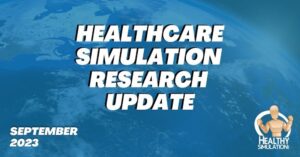
Healthcare Simulation Research Update September 2023

Latest Nursing Simulation Research from Clinical Simulation in Nursing Journal

Research Update: Clinical Simulation in Nursing May – June 2023
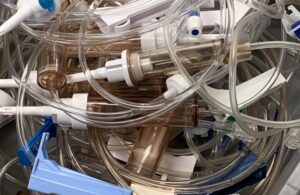
Healthcare Simulation Sustainability: Reuse, Refill, Recycle, Request

Uses of Simulation Educator Needs Assessment Tool (SENAT)
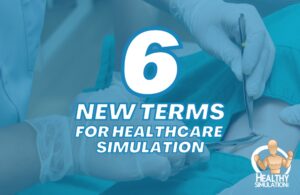
6 Additional Medical Simulation Keywords You Need to Know About

Latest Clinical Simulation News From Around the World | February 2023
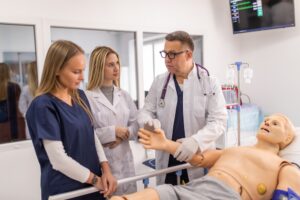
How to Incorporate Ethical Awareness in Healthcare Simulation Practice
Sponsored Content:



